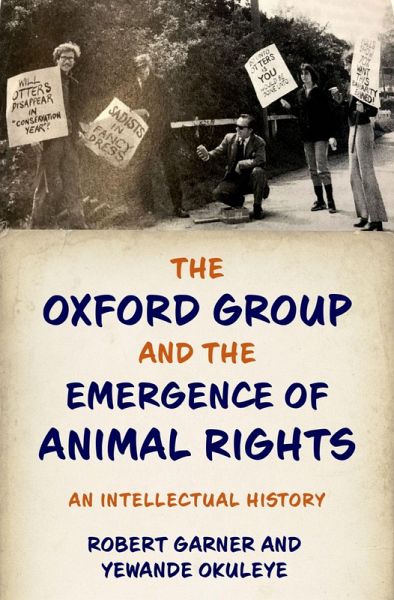
The Oxford Group and the Emergence of Animal Rights (eBook, PDF)
An Intellectual History
Versandkostenfrei!
Sofort per Download lieferbar
32,95 €
inkl. MwSt.
Weitere Ausgaben:

PAYBACK Punkte
16 °P sammeln!
Animal rights is now a concept that has achieved wide name-recognition. Vegetarianism, and even veganism, is now commonplace, representing a massive transformation in public attitudes. Fifty years ago, the concept of animal rights was almost unheard of and the animal protection movement lay dormant. Even vegetarians were regarded as, at best, cranks and, at worst, dangerous critics of the social order. Yet the late 1960s and early 1970s were a formative time for the contemporary animal rights movement. One of the most important and influential intellectual moments for animal rights occurred at...
Animal rights is now a concept that has achieved wide name-recognition. Vegetarianism, and even veganism, is now commonplace, representing a massive transformation in public attitudes. Fifty years ago, the concept of animal rights was almost unheard of and the animal protection movement lay dormant. Even vegetarians were regarded as, at best, cranks and, at worst, dangerous critics of the social order. Yet the late 1960s and early 1970s were a formative time for the contemporary animal rights movement. One of the most important and influential intellectual moments for animal rights occurred at this time at Oxford University among like-minded scholars who would become known as the Oxford Group. The Oxford Group and the Emergence of Animal Rights is about this little known group--a loose friendship group of primarily postgraduate philosophy students who attended the University of Oxford for a short period of time in the late 1960s. The book traces the early development of the Oxford Group and its influence on animal rights theory and activism. It also serves as a case study of how the emergence of important work and the development of new ideas can be explained, as well as how the intellectual development of participants in a friendship group is influenced by their participation in a creative community. For example, would Peter Singer have written his landmark book Animal Liberation--or anything about animal ethics--without being exposed to the other members of the Oxford Group? How would the discipline of animal ethics differ if the group had not produced their edited collection of articles, Animals, Men and Morals? Drawing on previously unpublished correspondence among and interviews with the surviving Oxford Group members, Robert Garner and Yewande Okuleye explore the social and political milieu in which the group formed to understand how such intellectual movements coalesce.
Dieser Download kann aus rechtlichen Gründen nur mit Rechnungsadresse in A, B, BG, CY, CZ, D, DK, EW, E, FIN, F, GR, HR, H, IRL, I, LT, L, LR, M, NL, PL, P, R, S, SLO, SK ausgeliefert werden.













